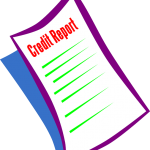 By Jordan Schneir
By Jordan Schneir
A bad credit score can follow around individuals like a failing grade, closing off certain opportunities and making it hard to progress toward their goals—using this metaphor, they might not even realize that one “F” they got during sophomore year is the reason for their problems.
Why your business credit score matters?
If you are a small business owner, your business credit score operates the same way. Without a high rating, your business will struggle to grow. You likely won’t be able to receive a favorable interest rate on a loan—you may not even qualify for a loan at all. Without those additional funds, your business will be stunted at a moment when it needs to expand.
And it’s important to realize that your business needs credit to have a credit rating (just like in school you can’t claim to have an “A” in the class before you’ve turned in your first assignment). That’s why it’s vital to establish a line of credit for your business as soon as you get off the ground. Even if you won’t necessarily need an influx of funds right away, you need to establish a strong history of taking credit and paying your debts on time. Loan lenders only trust those businesses that have established a reputation as a reliable borrower.
So whenever you decide it’s time for your business to expand, you need to have a proven credit rating—you can’t scramble to establish a strong credit history in a matter of days.
But if you discover that your credit rating is lower than you’d like, don’t fret—there are steps you can take to efficiently bump up your score.
What can you do to improve your business credit score?
Let’s put ourselves in the shoes of Fernando, a Latino hardware store owner who decides he needs to add more space to expand his inventory selection. The storefront next to his business is vacant and he’d like to rent it out to create a new section for his power tools. An extra expenditure like that will require him to access more funds. So he goes out to discover what kind of interest rate he can get, only to find out that his low credit rating has disqualified him from receiving any loan at all.
So what can he do?
First, Fernando needs to separate his business finances from his personal ones. He’s been using a single bank account –his personal one, to manage his business expenses. Many small business owners make the same mistake, using their personal credit cards and bank accounts to fund their businesses. By setting up separate business accounts the hardware store can begin to establish its own distinct credit history.
But establishing a credit history does not guarantee a positive credit score. So this brings us to the second step: Fernando needs to establish a strong reputation for his business. Making timely payments on credit card bills and other expenses will demonstrate the business’ reliability, improving its credit rating.
And third, Fernando should regularly monitor his credit score. If he does everything right, the score should go up. But if there are other problems, examining his score will reveal them and alert Fernando to address them as soon as possible.
Once that Fernando’s business credit score has risen to a high level, he can return to the original lender or a different one and get a business loan with a good interest rate so he can expand his hardware store into that new storefront.
Like Fernando, you can find out your business credit score and take action to improve it. Finding out your score is simple. And while establishing a strong credit reputation can take time, it’s a feat that all healthy businesses can accomplish. If you want to grow your business—either now or in the future—a strong credit score is essential.
Read this article on how to build your business credit quickly to learn more.
______
Jordan Schneir is a career businessman with over a decade working in corporate environments. He has also worked with several small businesses as a consultant. He is a graduate of The Ohio State University with a double major in Marketing & Logistics with an MBA from University of Central Florida. He’s a regular contributor to the business and finance blog of Camino Financial.
